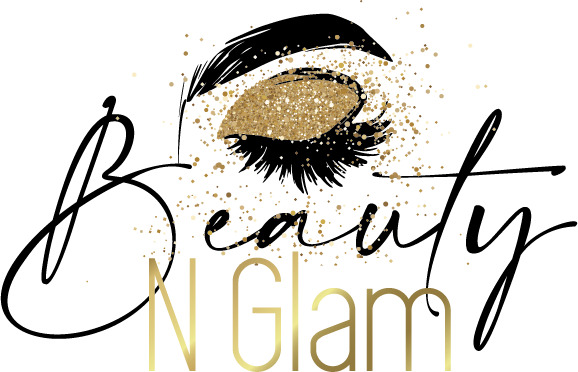Moringa Oil
When you picture your holy-grail skincare ingredients, you’re probably imagining a shelf full of glass bottles and various containers, because skincare takes a lot. The benefits of each bottle most likely do some form of the following: moisturize, clarify, reduce dark spots, have anti-aging benefits, or help build collagen. Now, imagine you could get those skin-enhancing benefits from one source entirely—no more clinking bottles and overflowing bathroom cabinets. Sure, we love a good shelfie as much as the next person, but sometimes it’s good to simplify things.
Crazy enough, the solution to the various skincare cocktails of oils and moisturizers you've been collecting over time has actually been around for centuries. What is it, you ask? It's called Moringa oil.
This all-natural source of skincare greatness is now being praised as an all-around wonder oil, but, it's hardly new on the scene. In fact, it's been used for health and beauty benefits for centuries.
MORINGA OIL
TYPE OF INGREDIENT: Oil
MAIN BENEFITS: Reduces fine lines and wrinkles, improves the overall appearance of the skin, soothes inflammation.
WHO SHOULD USE IT: In general, all skin types can benefit from using moringa oil.
HOW OFTEN CAN YOU USE IT?: Usage varies depending on the specific product, but in general, moringa oil can be used daily, both AM and PM.
WORKS WELL WITH: Moringa oil works well with most ingredients.
DON'T USE WITH: Moringa oil can be used with most ingredients.
What Is Moringa Oil?
"Moringa seed oil is an oil that comes from the moringa plant found in the Himalayan mountains," says Zeichner. "The oil is rich in omega fatty acids and antioxidants, which soothe and protect the skin." The antioxidants act as natural preservatives, making it a stable oil resistant to rancidity, and allowing for a longer shelf life. The seeds of the moringa tree are also high in oleic acid, another fatty acid, at 73%, which gives it additional beneficial properties we'll discuss later on. It's also nutrient-dense, high in palmitoleic and linoleic acids, and contains vitamins A and C as well.
"Its seeds contain about 40% of oil which is high in oleic acid triglycerides and, for this reason, is often compared to olive oil," says Olioso, who notes that the oil leaves behind a nice texture on the skin, and also contains powerful antioxidant tocopherols—like Vitamin E and calming sterols, which she says makes it ideal for cosmetic applications. Moringa oil is found in numerous cosmetics due to its moisturizing, cleansing, and emollient properties.
Benefits of Moringa Oil for Skin
• Hydrating: "Moringa oil is 40% monounsaturated fatty acids, with 70% of that being oleic acid," says King. "This makes it great for supporting the skin barrier, which seals in hydration and protects us from environmental insults. This means that it is a good moisturizer and beneficial for dry and sensitive skin."
• Cleansing: Those fatty acids—particularly oleic acid, a compound found in moringa—make moringa a very cleansing oil.
• Anti-aging: Providing that the product is comprised of "relatively fresh oil with low free oleic acid content," says Olioso, it will be effective at plumping fine lines and contributing to an overall more youthful appearance.
• Healing: Because of its emollient properties, moringa is a solid choice for applying to minor cuts, burns, and scrapes.
• Balancing: "Moringa oil is also similar to the oil naturally produced by our skin, which means that it can help to balance and nourish all skin types without being greasy," says King.
• Anti-microbial: "It has antimicrobial and anti-inflammatory properties as well, and because of its high content of vitamin E, it also has potent antioxidant properties," says King.
• Combats breakouts: The anti-inflammatory properties may also help contribute to clearer skin, counteracting breakouts. "It is an ingredient commonly used to address skin issues like pigmentation, fine lines and wrinkles, and even acne prone skin," says Zeichner.
• Therapeutic: Moringa is often used in aromatherapy products as a carrier oil (due to its long shelf life).
Use moringa oil to condition dry lips and other rough, dry skin conditions such as dermatitis, eczema, and psoriasis.
Side Effects of Moringa Oil
Unfortunately, there's no scientific proof available to verify all of its potential side effects. While certain professionals revere the oil's miracle powers, clinical trials have not been conducted to prove these claims. "We need more data to fully understand the effects of moringa oil in topical products because there have not yet been many studies about this," says King. As with any new product, experts recommend patients do a spot test behind the ear and leave it on for 24 hours. If any reaction occurs, discontinue use.
How to Use Moringa Oil
While moringa can be purchased as an oil (i.e. one containing no other ingredients), it's most often used in conjunction with other ingredients. The oil itself can be used as a moisturizer, hair treatment, or even in cooking. You can use moringa oil in the morning and at night. It's best to use it at the final step of your nighttime routine, or before your sunscreen in the morning.
